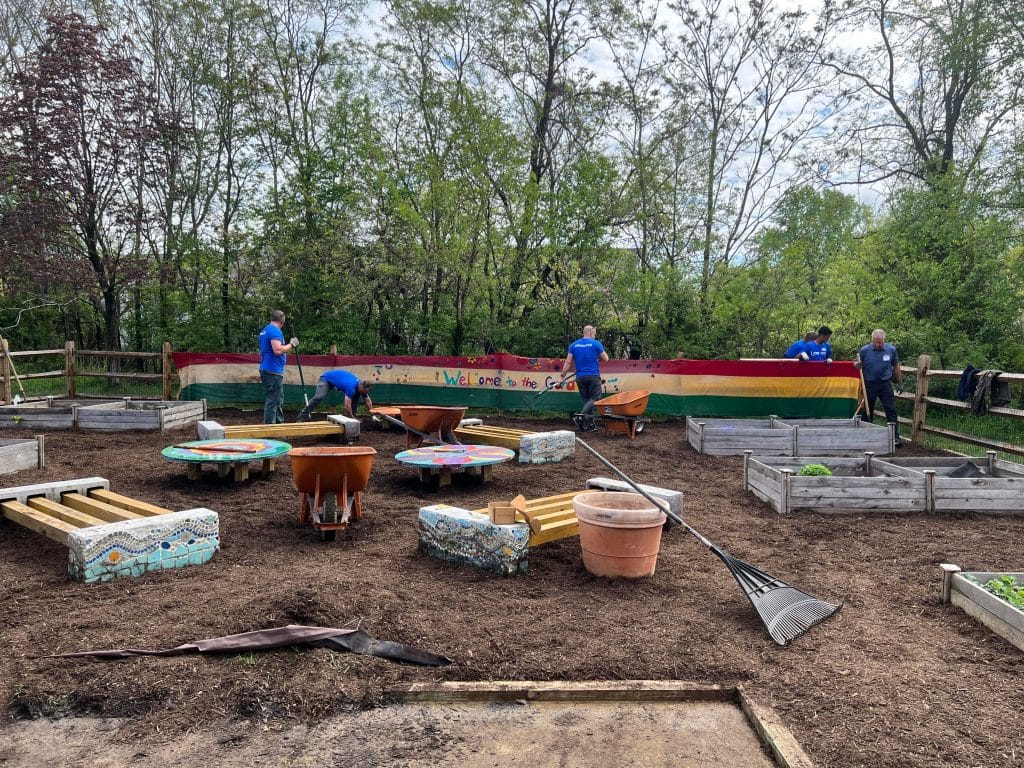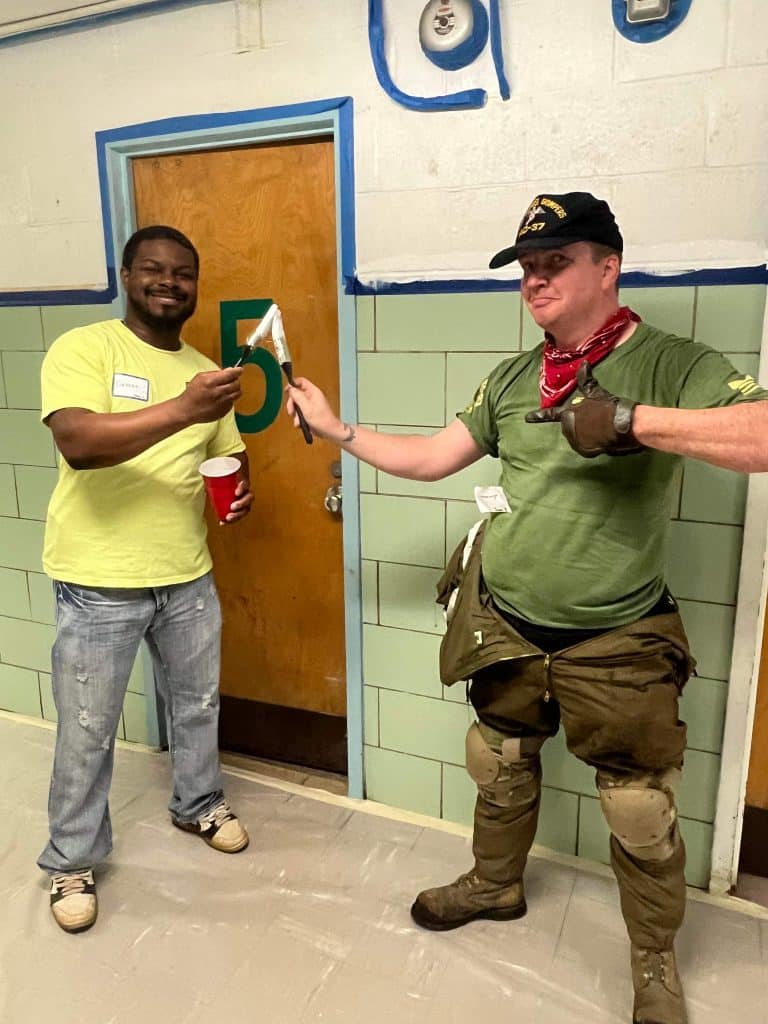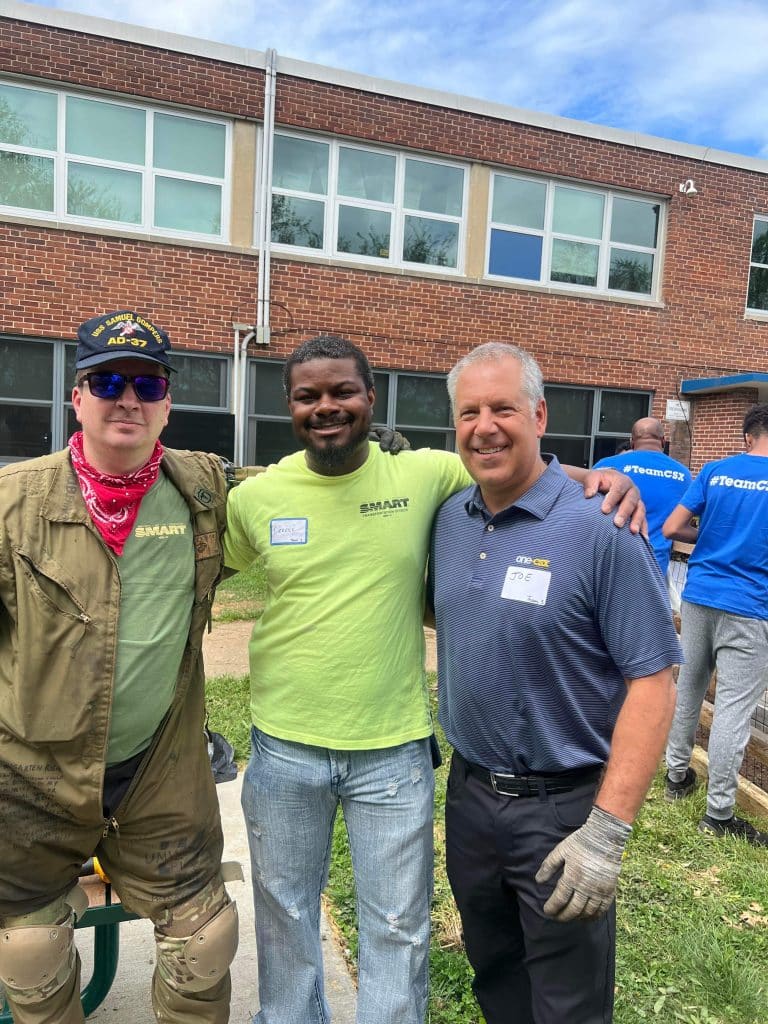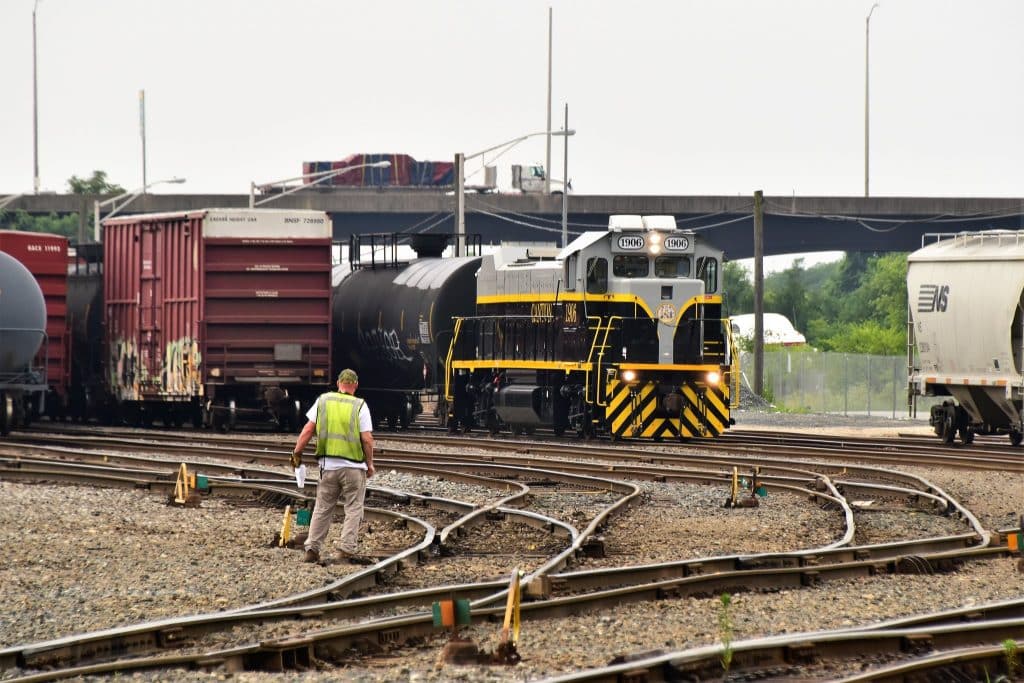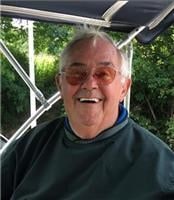SMART-TD promotes hazardous material response training in Houston
This article was contributed by Johnny Walker, SMART-TD Local 610’s legislative representative.
Rail conductors and all other crafts have a role to play in the event of a derailment or accident. In these situations, conductors are first on the scene. But unfortunately the vast majority of our people have limited, if any, training on how to triage these scenes when hazardous materials are involved. The SMART Transportation Division is engaged in closing this training gap by giving our members the tools they need to make them and their colleagues safer.
Started in 1990 with funds from the National Institute of Environmental Health Sciences (NIEHS) and cooperation by nine rail union affiliates, the Rail Workers Hazardous Materials Training program (RWHMT) fills a much-needed gap in hazmat and first-responder training for rail workers nationwide. Since its founding, the RWHMT has trained over 27,000 railroad workers with courses that address the requirements of OSHA 1910.120 and DOT’s hazardous materials regulations (49 CFR, Part 172, Subpart H). Due to its success in 2008, the RWHMT has received additional funding from the U.S. Department of Transportation to conduct hazardous material instructor training courses, making it possible for more comprehensive courses and additional opportunities for railroad workers to attend.
Although FRA and OSHA share jurisdiction in regulating railroad worker safety and health conditions on property, railroaders do not have the same access to quality, comprehensive basic health and welfare or hazmat training as workers in many other industries. This is where the RWHMT comes in.
“Training is vital because we don’t just rise up to the occasion; we fall to our level of training. We need to meet the 40-hour requirement in this limited amount of time to give the participants their certifications with the maximum amount of information and training, and we’re already behind the clock before our class starts.”
Instructor Chad Yokoyama, SMART-TD Local 113
The course is no typical union convention or employer-mandated training. It is 100% paid for through grants, so there is no out-of-pocket cost to participants and a small stipend for lost work. Program participants can expect from the moment they arrive in Texas, a week-long intensive course, which includes classroom and field training at the Houston Fire Department Val Jahnke Training Facility. It is also not a pass-fail job-dependent training; it is fun and factual, ensuring participants can return to their terminals with new knowledge and information gained in a comfortable stress-free, open union environment.
Scenarios based on real events with group training modules determine what class participants know and what they should know when it comes to possible real-life situations they might encounter. As we have seen in East Palestine, Ohio, and other instances, when it hits the fan, it’s not time to come up with a plan. Rail workers need to fall back on our level of training, which the railroads do not always provide.
After the initial classroom training, participants get the opportunity to don self-contained breathing apparatus (SCBA) and other more-intensive hazardous materials PPE, performing mock disaster scenarios to obtain a sense of what happens during and after such an incident.
While participants will not have the opportunity to fight a fire or clean up an actual spill, they do experience some of the same training that fire academy recruits go through by being able to go through an escape house and watching a controlled hazardous materials burn involving a train that hit a school bus. During the controlled burn, instructors demonstrate the actual training for firefighter recruits through the use of controlled propane lines and static field instruction tools that mimick a real-life scenario. Our members will watch this scenario while speaking to real firefighters, creating conversations on how we can protect the community together. Railroaders are reminded that we are the first responders and can help mitigate life-and-death situations through training and knowledge, always reminding everyone not to exceed their level of training. While we are not Johnny Gage from the old show “Emergency!” or superheroes, we do need to ensure our own safety so that others will benefit from our training and knowledge.
Another benefit of this training is that it is not railroad- or union-specific; a CSX BMWED member can attend it together with a TCU Amtrak member. We see that we all face the same issues and develop new solutions together. As we have seen in the recent coalition bargaining, we have more power in numbers while working together. We get a chance to talk to and ask questions to other crafts without prying company eyes or delaying our jobs. Instructors and guest speakers from various crafts, agencies and unions, along with the training scenarios, provide opportunities to ask other crafts and railroads what the protocol and FRA rules are versus what we may do daily. This way, participants can return with the knowledge to our terminals or crafts to create a better, safer working environment.
Michael Mrazik, of SMART-TD Local 610 in Baltimore, who attended the training with me, said it best: “I attended to gain ammunition for my arsenal of knowledge, and this course did not disappoint.”
As Local 610’s legislative representative, I was impressed with the training. Many railroads’ in-house trainings might not cover topics as in-depth at these sessions, but the carriers would certainly punish them if they did not know it.
Participants remarked that before this course, they knew the type of hazardous materials they were hauling, and that was it. They knew it was dangerous but never focused on what the dangers and health risks were. Nor did they realize how often they are around these dangers, even at home. Because of this training, if they ever come across a situation, they will know the dangers, signs, and symptoms and not become another casualty when a possible tragedy unfolds.
Participants receive certificates and an OSHA 10 card proving that they are educated and have the tools to protect our membership and the communities they live and serve in after completing the training. After three years, they have the opportunity to come back to polish their skills and retake the updated course.
The first time I took this course, I was able to help our members, other workers, and contractors on site when our customer wanted us to follow OSHA standards, which were more stringent than our railroad rules. Because of this course, I knew to look at the safety equipment and ask for the training materials, only to find out these were grossly outdated and unserviceable. Even though the customer was forced to correct these issues, they were happy to update their equipment and implement the OSHA requirements, especially when they tried to no longer hold us to OSHA standards because I found deficiencies. We were happy to oblige, but if we didn’t follow these standards after being informed about the dangers, we would be responsible, and we are not going to put our membership at risk; SMART can’t and will not look the other way.
Other past participants have remarked that this training has protected and saved members’ jobs because they had the tools and knowledge to hold employers accountable for safety violations. There is no excuse for anyone working in dangerous environments not to have access to the knowledge and proper materials to complete their jobs and come home safely. Many employers say that they train and act accordingly in various situations only to find out when it’s too late that the training and the actions were insufficient.
While it will always take a joint partnership between the railroads and unions to make our operations safer for the communities in which we live and work, the Rail Workers Hazardous Materials Training Program and our unions continue to work tirelessly to pick up the slack, provide education and fight for legislation with safety in mind.
Johnny Walker is the legislative representative for SMART Transportation Division Local 610 in Baltimore, Md.
